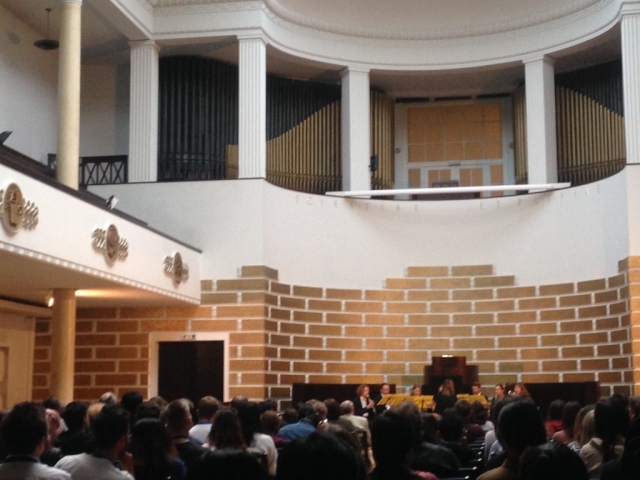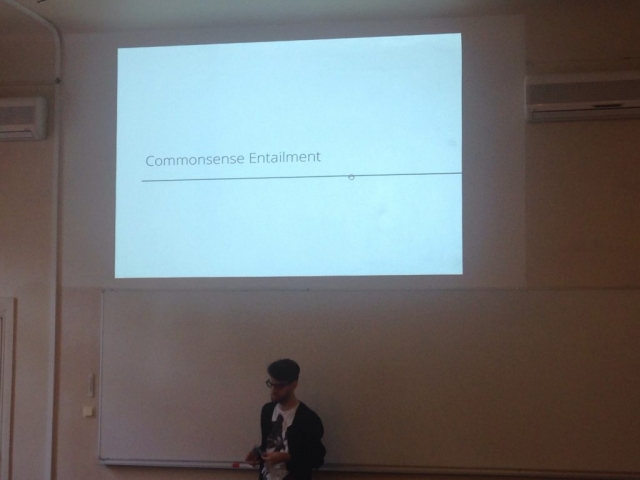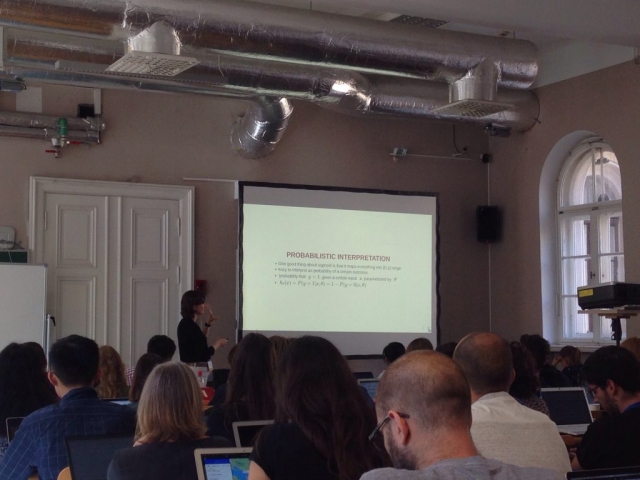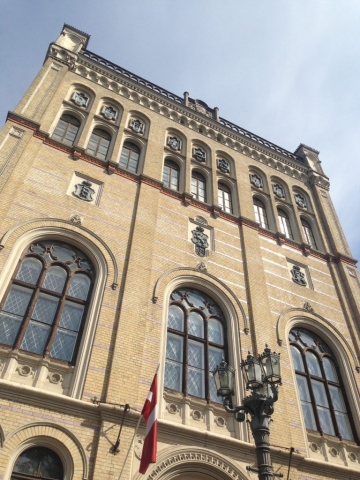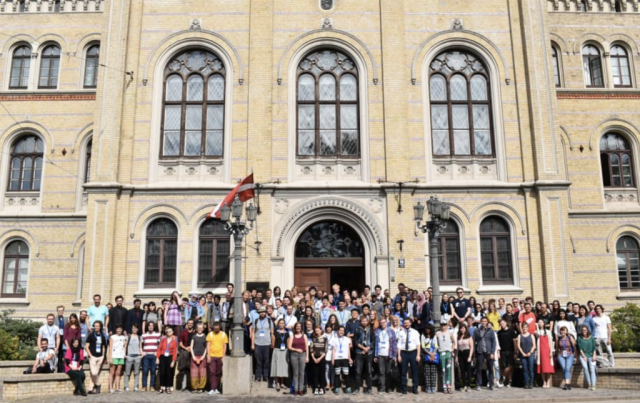Impressions by Thi Hong Hanh Tran
I am delighted to share my experiences and impressions from the 34th European Summer School of Logic, Language, and Informatics (ESSLI) held at the picturesque University of Ljubljana, Faculty of Computer and Information Science. ESSLI is a venerable summer school that has been consistently fostering interdisciplinary learning in the fields of logic, language, and informatics for over three decades, and my time here was nothing short of enlightening.
The summer school, structured around three core domains – logic, language, and informatics – provided a diverse array of lectures and activities designed to engage and inspire attendees. In the first week, I had the privilege of attending captivating lectures such as “Deep Language Learning: Modeling Language from Raw Speech” by Prof.
Gasper Begus, “Data Perspectivism in Computational Linguistics” by Prof. Enrica Troiano and Valerio Basile, and “Limitations in NLP: Disagreements, Misunderstandings, and Other Challenges” by Prof. Michael Roth. These lectures not only delved into the theoretical underpinnings of their respective subjects but also provided practical insights and real-life applications. Personally, I found the “Data Perspectivism in Computational Linguistics” class particularly enlightening, shedding light on the nuances of annotator variability and offering valuable strategies to address annotation disagreements. The concept of “perspectivism” introduced in these lectures was a standout for me.
In the second week, my intellectual journey continued with lectures like “Formal Language Theory” by Prof. Ryan Cotterell and “Neural Networks and Computational Approaches to Semantic Change Detection” by Prof. Lidia Pivovarova and Andrey Kutuzov. These sessions, characterized by their step-by-step problem-solving approach, balanced theory with practical applications, making complex topics more accessible and engaging.
In addition to daytime lectures, the evening sessions provided further insights into the latest developments in the field. “Large language models for cross-lingual transfer” by Prof. Marko Robnik Šikonja explored the strengths and weaknesses of large language models in NLP downstream tasks, while “Language Technology Society” by Prof.
Malvina Nissim delved into the intricate relationship between language technology and society. These evening lectures were both informative and interactive, as the speakers generously fielded questions and offered guidance on potential research directions.
The summer school wasn’t just about academic enrichment; it was also an opportunity to build connections and foster camaraderie. The organizers thoughtfully included games and bonding activities, which not only added an element of fun but also facilitated meaningful interactions among participants. I must also extend my gratitude to the organizers for their resilience and support in managing the unexpected challenges posed by a severe storm during the program.
ESSLI was more than just a learning experience; it was a platform that brought together like-minded individuals from across the globe. Through engaging in discussions,socializing, and debating, I had the privilege of forging friendships and professional connections that will undoubtedly shape my future endeavors in the field.
In closing, I would like to express my heartfelt appreciation to the SDJT association for providing the scholarship that made this invaluable experience possible. ESSLI 2023 was a journey of knowledge, growth, and camaraderie that I will cherish for years to come.
Impressions by Jaya Caporusso
I had the honor to receive a scholarship from the SDJT (Slovenso društvo za jezikovne tehnologije) association to attend the 34th European Summer School in Logic, Language and Information (ESSLLI 2023).
The Summer School is an important recurrence for the Natural Language Processing and Computational Humanities community. This year, it took place at the Faculty of Computer and Information Science (Fakulteto za računalništvo in informatiko) at the University of Ljubljana from the 31st of July and the 11th of August 2023.
It was my first time attending ESSLLI, and I was impressed by the organization and the rich and well-structured program. The courses were divided into three tracks based on the topic: “Language and Logic”, “Language and Computation”, and “Logic and Computation”. Having an interdisciplinary background myself, I strongly appreciated the interdisciplinarity of the Summer School. This enabled many fruitful exchanges, both during the lectures and during the free time. Furthermore, each course was tagged as either “Introductory”, “Advanced”, or “Foundational”. I found this essential to be able to navigate the large offer of lectures.
The courses that I found the most interesting and important for my work were “Data Perspectivism in Computational Linguistics (Advanced) by Dr. Enrica Troiano and dr. Valerio Basile in the first week, and “Computational Approaches to Semantic Change Detection (Advanced)” by Dr. Lidia Pivovarova and Dr. Andrey Kutuzuv and Computational Creativity by Dr. Tim Van de Cruys. Furthermore, the evening lecture by Dr. Malvina Nissim, “Language Technology Society”, was extremely inspirational and important. Perhaps the most precious aspect of the Summer School, however, was the connections made with participants, lecturers, and organizers. More than anything, they will be of fundamental importance for my future work.
The fact that ESSLLI 2023 took place in Ljubljana represented an additional asset, for me. As a young researcher who is building her career in the field of Natural Language Processing in Slovenia, the Summer School represented an important opportunity to network with local colleagues and other SDJT members.
In conclusion, participating in ESSLLI 2023 was an important formative experience for me, and I am extremely grateful to SDJT for this opportunity, which I hope to be able to repeat in the future
